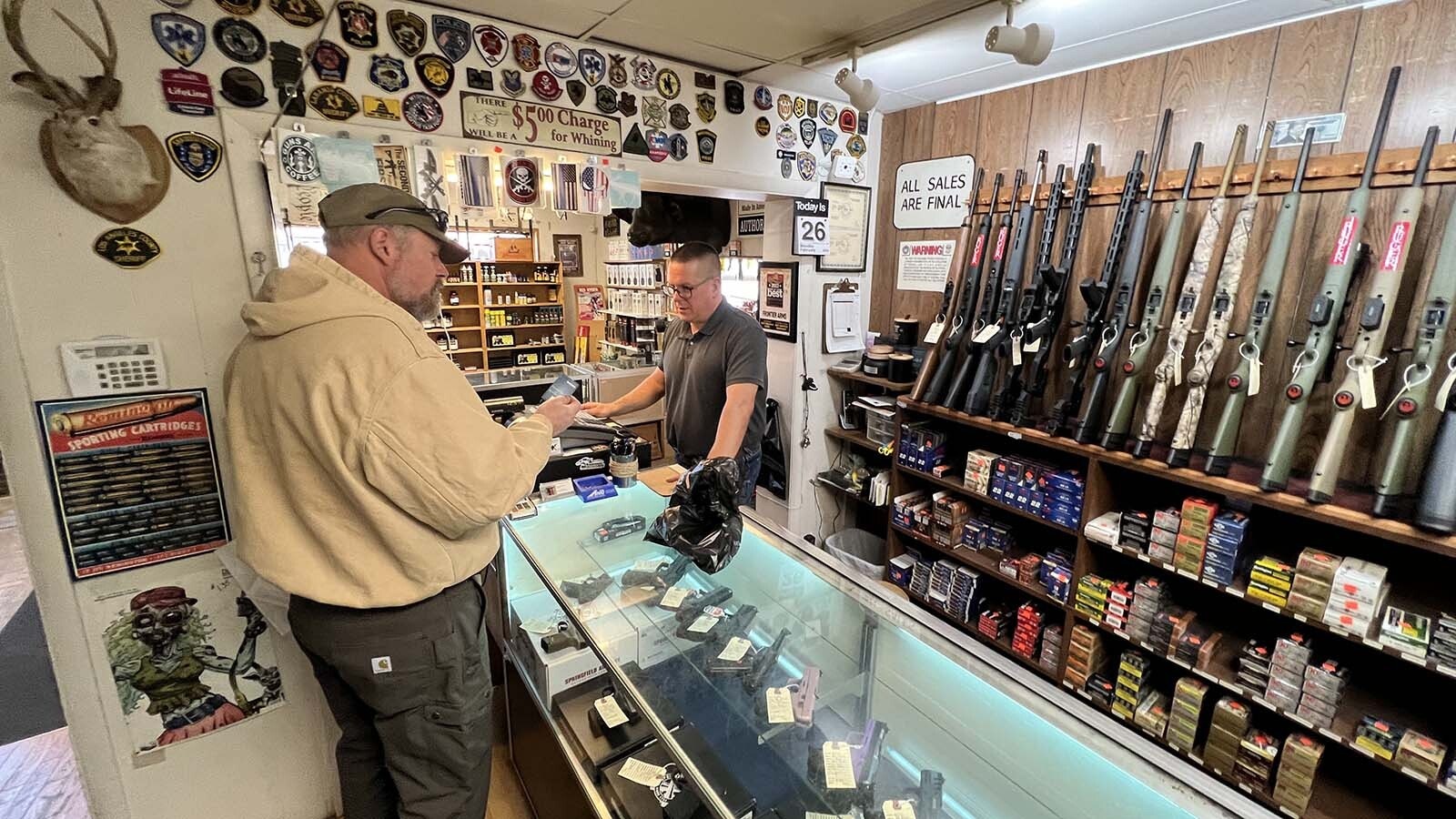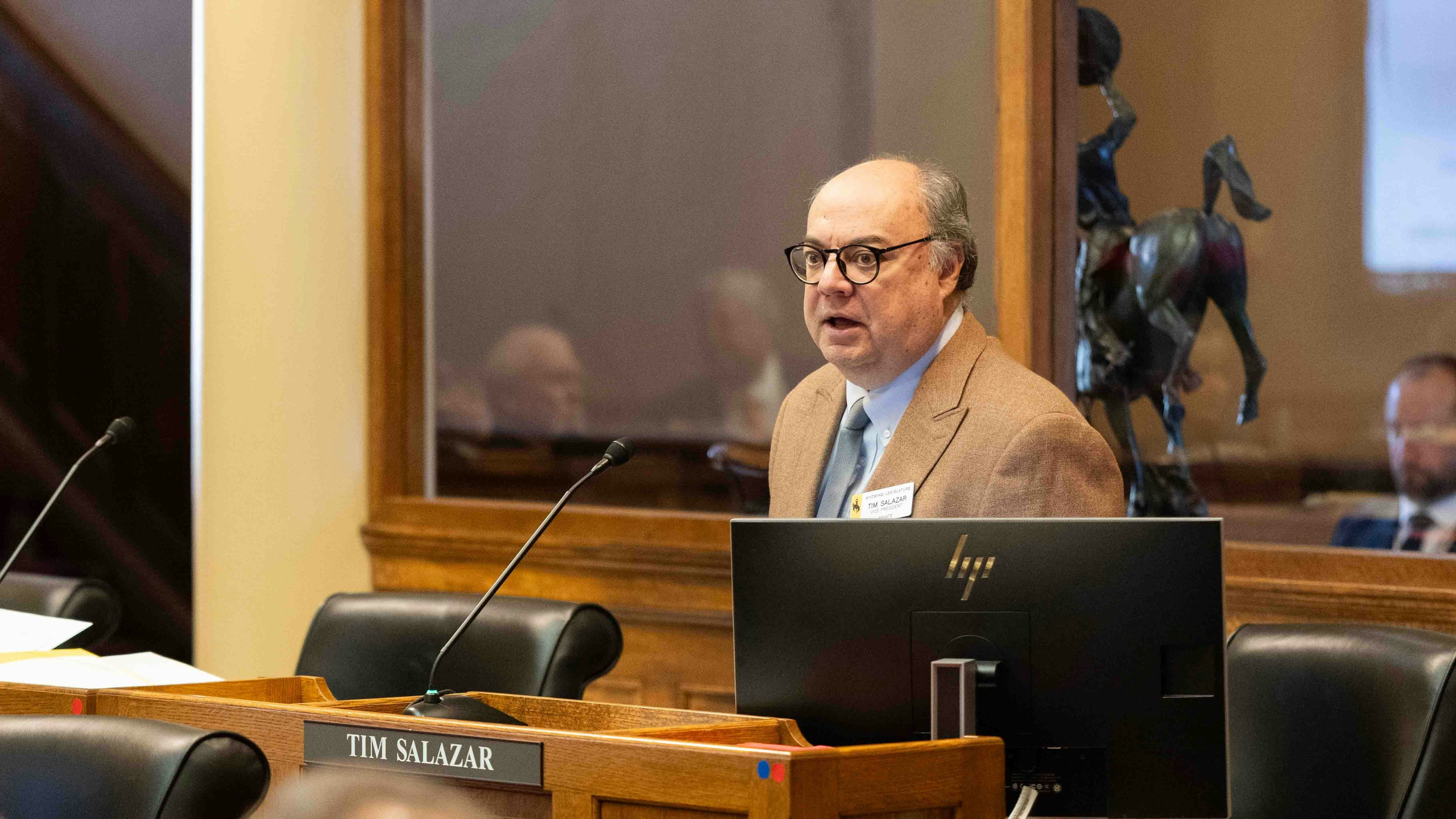Wyoming’s law against tracking credit card codes for guns and ammunition purchases is “weak” and could put residents at risk of having their gun shops shut down and their names listed on a federal registry, a Second Amendment rights advocate told legislators.
“We have a very weak ‘show law’ in the state of Wyoming. Other states stepped up and actually took a strong stand, and we’re seeing the banks back off,” said Mark Jones of Buffalo, National Director for Gun Owners of America.
He was testifying Friday before the House Judiciary Committee regarding House Bill 234.
Wyoming Banks Have Nothing To Do With It
The committee voted to forward the bill to the House floor. HB 234 aims to strengthen Wyoming’s existing statue against financial institutions tracking firearms and ammunition sales through credit card purchase codes.
However, banks don’t deal with those codes, Wyoming Bankers Association President and CEO Scott Meier told the committee.
Purchase code tracking is implemented through the International Standards Organization (ISO) and is voluntary on the part of credit card processing companies, he said.
Purchase code tracking “has not had a lot of impact on us, because we don’t have anything to do with that,” he said. “We don’t assign the codes, we don’t look at the codes, we don’t know what the codes are, we don’t get a report.”
Meier told the committee that he has misgivings about a provision in HB 234 allowing people to file civil lawsuits. That is, if they think their gun purchase codes are being tracked, but the Wyoming Attorney General’s office didn’t investigate such allegation in a timely manner.
That could leave banks vulnerable to people making threats to file lawsuits, which in turn could force financial institutions to offer settlements, which Meier said would amount to “legalized extortion.”
Committee member Rep. Ken Chestek, D-Laramie, said he shares that concern, and proposed an amendment to strike the civil action option from HB 234.
That amendment failed.
Part Of An ESG Scheme?
HB 234 would change “may” to “shall” in calling for the Attorney General’s Office to investigate allegations purchases for firearms, firearms accessories and ammunition are being tracked.
Jones said at least 16 other states have passed laws with such strong language, so those states are “pushing back” against tracking the purchasing codes.
The administration of President Donald Trump is also “pushing back,” he said, adding that means that at least for now, the problem has been mitigated.
But Wyoming should strengthen its law now to avoid problems in the future, he added.
The ISO is deliberately pushing for tracking firearms and firearms-related purchasing code as part of its broader Environmental, social, and governance (ESG) program, he said.
ESG has an anti-gun element, he added.
“The first step of this is designed to determine who’s selling firearms so that they can ‘de-bank’ them,” Jones said.
To that point, the firearms purchase codes could target smaller sporting goods shops, which make most of their money from gun and ammunitions sales, he told the committee.
A large company such as Walmart that makes only a small fraction of its money from guns and ammunition would not likely be coded as a firearms dealer, Jones said.
And if Wyoming doesn’t join other states in toughing up its stance now, individual gun owners could end up being targeted, he added.
“The second step, if we get another Democrat president, will be to track the individual purchase so they can identify the individual and create a registry,” he said.
Credit card purchase codes should remain more ambiguous, such as “sporting goods,” rather than specifically listing guns and ammunition, Jones said.
Meier said credit card purchasing codes are widely used by credit processing companies for such things as determining customer “rewards” for hotel stays or airline miles.

‘Unfunded Mandate’ For AG’s Office?
Committee Chairman Rep. Art Washut, R-Casper, along with others, raised concern about the “shall” requirement putting an undue burden on the Attorney General’s Office.
The office recently lost two positions, and requiring it to investigate every allegation of credit card purchase code tracking could overwhelm the AG’s staff, he said.
Committee member Rep. Jayme Lien, a co-sponsor of HB 234, said the Attorney General’s Office works for the people of Wyoming, and it’s important to push back against federal overreach.
Washut and others said that if the HB 234 passes into law, the office might need more money to meet the demand.
“Sometimes it’s not a matter of willingness, it’s a matter of logistics and reality of what you have for staff at the office to take care of things,” he said.
Chestek said the bill amounts to an “unfunded mandate” for the Attorney General’s office.
Roll Call
Chestek cast the sole vote against moving HB 234 to the House floor.
They ayes included Washut, Lien and Reps. Marlene Brady, R-Green River; Laurie Bratten, R-Sheridan; Tom Kelly, R-Sheridan; Daniel Singh, R-Cheyenne; and Joe Webb, R-Lyman.
Rep. Lee Filer, R-Cheyenne was absent, excused.
Mark Heinz can be reached at mark@cowboystatedaily.com.





